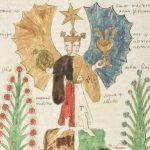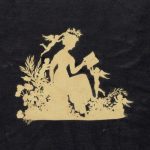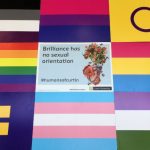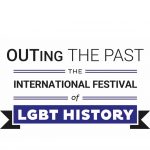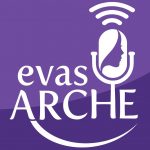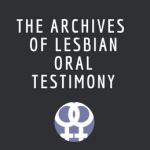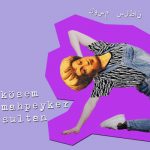 Podcast von Stefanie Elias und Vero Eli Schwarz (Web)
Podcast von Stefanie Elias und Vero Eli Schwarz (Web)
Dieser neue Podcast wird seit Frühling 2021 von den Schauspielerinnen Stefanie Elias und Vero Eli Schwarz betrieben. Sie stellen in der populär ausgerichteten Reihe jeden Montag die Biografie einer Frau* vor. Daran knüpfen sie jeweils ein Thema aus dem aktuellen feministischen Kosmos. Die Artwork gestaltet Anna Zehetgruber.
Beschreibung: „History meets Feminismus meets Laberpodcast meets Crime: Quer durch alle Epochen und Kontinente lernen wir ‚gute‘ und ‚böse‘ Frauen kennen – eben bitches und queens. Nacherzählt mit Wiener Schmäh!“ Dazu ist erst jede Woche eine neue Folge erschienen, im Spätsommer 2021 wurde ein Zwei-Wochen-Rythmus eingeschlagen.
Bisherige Folgen:
- #16 Maria Sybilla Merian: Metamorphose – Malerin, Künstlerin, Naturforscherin, Illustratorin, Wissenschafterin und Sammlerin im 17. Jdhd. (Web)
- #15 Sarah Baartman: Menschliches Artefakt – Südafrika und Großbritannien: Eine Khoikhoi-Frau um 1800 (Web)
- #14 Nana Asma’u: Spiritualität durch Intellekt – Nigeria: Eine Prinzessin und Gelehrte im Sokoto Kalifat im 19. Jhd. (Web)
- #13 Trota di Salerno: Wieselhoden & Bullengalle – Italien: Eine Ärztin im 12. Jhd. (Web)
- #12 Dorothea Puente: Regenschirm, Screwdriver, Schaufel – USA: Die Serienmörderin der 1980er-Jahre (Web)
- #11 Policarpa Salavarrieta: Auffallend unauffällig – Kolumbien: Eine Näherin und große Nationalheldin (Web)
- #10 Fazana – später Begum Samru und noch später Joana Nobilis – Indien: Eine Tänzerin, Soldatin, Söldnerin, Offizierin, Königin. Außerdem konvertierte Christin, Liebende und Machtsymbol (Web)
- #9 Annie Turnbo Malone und Madam CJ Walker: vorhair – nachhair – USA: Zwei Entrepreneurs in der Beauty-Industrie, zwei Women of Color, zwei Philanthropinnen und Millionärinnen (Web)
- #8 Kösem Mahpeyker Sultan: Gift & Milch – Konstantinopel: Eine der mächtigsten Frauen des 16. und 17. Jhds. im osmanischen Reich (Web)
- #7 Cevalière Charlotte d’Éon: Ritter:in im Korsett – Russland: Eine Dragoner:in, Spion:in, Hofdame:herr, Freimaurer:in, Soldat:in, Diplomat:in und Schaukämpfer:in (Web)
- #6 Billie Holiday: hooked bitch heroin:e – kein Blatt vorm Mund – USA: Eine Jazzsängerin, Bürger:innenrechtsaktivistin und Heroinabhängige. Das Diskussionsthema der Folge ist Continue reading

